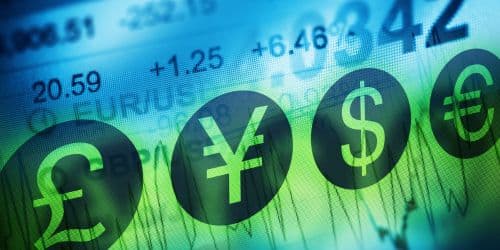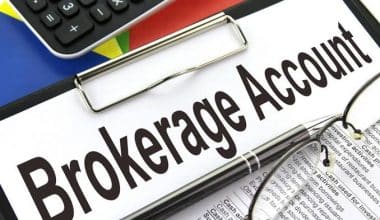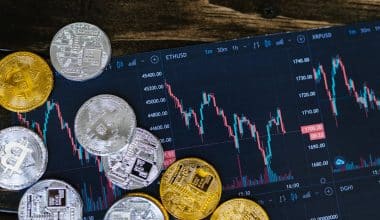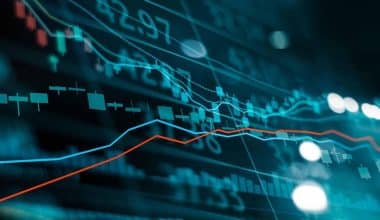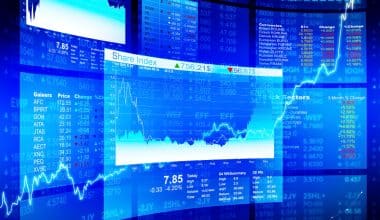You know when you go on vacation and swap your home cash for some foreign dough? That’s just a tiny glimpse into the massive world of forex trading.
Forex is where all the money swapping action happens on a global scale. It’s the biggest financial arena for trading one country’s cash for another.
But forex isn’t just about making sure you have enough euros for gelato in Italy. Nope, savvy traders make money by speculating on whether currency values will go up or down against each other. Profit comes from those price movements.
So if you’re intrigued by the idea of playing the global currency market from home, let’s map out how to get started as a rookie forex trader.
1. Forex Basics: Educate Yourself
Forex trading might seem complex, but don’t be intimidated. You can break it down into easy-to-understand steps. Here’s your foundation:
- Currency Pairs: You trade currencies in pairs, like EUR/USD. You buy one currency and hope it strengthens against the other in your forex trades.
- Pips & Leverage: Price movements are measured in pips, the smallest increment. Leverage allows you to control a larger position with a smaller deposit in your forex trading account, but it amplifies both profits and losses.
There’s more to learn, but resources abound. Check out online forex trading courses, forums, and educational materials from reputable forex brokers.
2. Open a Demo Account: Practice Makes Perfect
Before jumping into live trading with real money, open a demo account with a forex broker. This lets you practice forex trading in a simulated environment with virtual funds. Treat it like a training ground for your forex trading journey.
Experiment with different strategies, get comfortable with the forex trading platform, and feel the thrill (and potential sting) of trades without risking your hard-earned cash in a live trading environment.
3. Develop a Trading Plan: Be Your Own Boss
Think of a trading plan as your personal rulebook for your forex trading activities. It outlines your entry and exit strategies, risk management practices, and overall trading goals. Here’s what to include in your trading plan:
- Technical vs. Fundamental Analysis: Will you focus on technical indicators like charts or analyze economic news and events impacting currencies in the forex market?
- Entry & Exit Points: Define clear conditions for entering and exiting forex trades to avoid impulsive decisions based on emotions.
- Stop-Loss Orders: Set these to automatically exit a losing trade in your forex trading account, limiting your potential losses.
Your trading plan is a living document. Adapt it as you learn and gain experience in the forex market.
4. Master the Art of Technical Analysis
Technical analysis involves studying historical price charts and market indicators on your forex trading platform to predict future price movements. It’s a popular approach among forex traders, and there are many tools at your disposal:
- Moving Averages: These smooth out price fluctuations in the forex market, helping identify trends for your forex trades.
- Support & Resistance Levels: These are areas where the price tends to bounce back in the forex market, indicating buying or selling pressure, impacting currency values.
- Chart Patterns: Recognize recurring patterns on charts that might signal potential price reversals in your forex trades.
Technical analysis isn’t a magic formula, but it can equip you with valuable insights for informed trading decisions in the forex market.
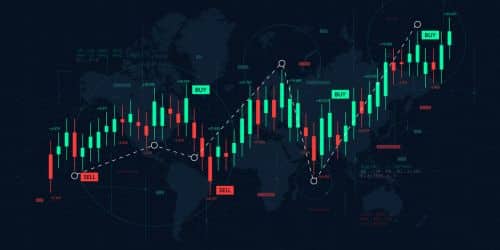
5. Stay Informed: The World Affects Currencies
Global events can significantly impact currency valuations in the forex market. Here’s what to keep on your radar to make informed decisions in your forex trades:
- Economic Data: Central bank interest rate decisions, inflation reports, and GDP figures can all influence currency strength in the forex market.
- Political Events: Elections, trade wars, and geopolitical tensions can trigger market volatility in the forex market, impacting exchange rates.
- News & Analysis: Stay updated on economic news and expert analysis to understand the ‘why’ behind currency movements in the forex market.
Being informed helps you anticipate potential market shifts and adjust your trading strategies accordingly in the forex market.
6. Find a Reputable Forex Broker
Your forex broker is your gateway to the forex market. Choose one that’s regulated, offers a user-friendly forex trading platform, and caters to beginners. Here’s what to consider when choosing a forex broker for your forex trading account:
- Regulation: Ensure your forex broker is licensed by a reputable financial authority.
- Trading Platform: Look for a forex trading platform that’s easy to navigate, with clear charts, and various order types to execute your forex trades.
- Spreads & Commissions: Compare spreads (the difference between the buy and sell price) and commission fees to find a cost-effective forex broker for your trading activities.
Don’t be afraid to open demo accounts with a few different forex brokers to test their platforms and features before committing to a live trading account.
7. Start Small, Manage Your Risk
Forex trading can be risky, so responsible risk management is essential. Here’s how to be a responsible forex trader:
- Start with a Small Account: Don’t risk more than you can afford to lose in your forex trading account. Begin with a small amount and gradually increase your trading capital as you gain experience and develop your trading strategy.
- Risk Management: Always use stop-loss orders and never risk more than a small percentage of your total trading capital on any single forex trade.
- Discipline is Key: Stick to your trading plan and avoid impulsive decisions based on emotions. Patience and discipline are essential for success in the forex market, different from the stock market where you might invest for the long term.
Remember, consistent small wins are better than one big gamble that could wipe out your forex trading account.
8. Be Patient, Learning is a Journey
There’s no shortcut to becoming a forex trading master. It takes time, dedication, and continuous learning. Here’s how to cultivate a growth mindset for your forex trading journey:
- Review Your Trades: Analyze your wins and losses to identify patterns and areas for improvement in your trading strategies.
- Learn from Mistakes: Everyone makes mistakes. Don’t dwell on them, but use them as stepping stones to become a better forex trader.
- Stay Curious: The forex market is dynamic. Keep learning new trading strategies, stay updated on market trends, and adapt your approach as needed in the ever-changing forex markets.
Embrace the learning process, and you’ll be well on your way to achieving your forex trading goals.
9. Don’t Chase the Get-Rich-Quick Scheme
Beware of unrealistic promises of overnight riches in the forex market. Forex trading requires hard work, discipline, and a healthy dose of realism. Here are some red flags to watch out for when choosing a forex broker or following trading advice:
- Guaranteed Profits: No one can guarantee profits in the forex market.
- Robots & Trading Signals: While some tools can assist you, there’s no magic bullet for success in forex trading. Ultimately, the responsibility for your trading decisions lies with you and your understanding of market dynamics.
- Unregulated Brokers: Avoid forex brokers who aren’t licensed by reputable authorities. They could be scams.
Focus on building your knowledge and skills, and the financial rewards will follow through consistent effort in your forex trading journey.
10. Forex Trading: A Marathon, Not a Sprint
Forex trading isn’t a get-rich-quick scheme. It’s a marathon, not a sprint. Here’s how to approach it for the long haul:
- Set Realistic Goals: Don’t expect to become a millionaire overnight. Set realistic goals that align with your experience, risk tolerance, and trading capital.
- Focus on Consistency: Aim for consistent, smaller wins rather than chasing big, risky trades in the forex market.
- Enjoy the Process: Trading should be challenging but also enjoyable. Find a balance that keeps you motivated in the long run on your forex trading journey.
Final Thoughts
The forex market can be a thrilling adventure, but it’s not a walk in the park. Are you ready to put in the hard work and reap the rewards? Open a demo account, practice your strategies, and embark on your forex trading journey today! Remember, we all start somewhere. Dive in, learn from experience, and become a forex trader you’re proud of.
